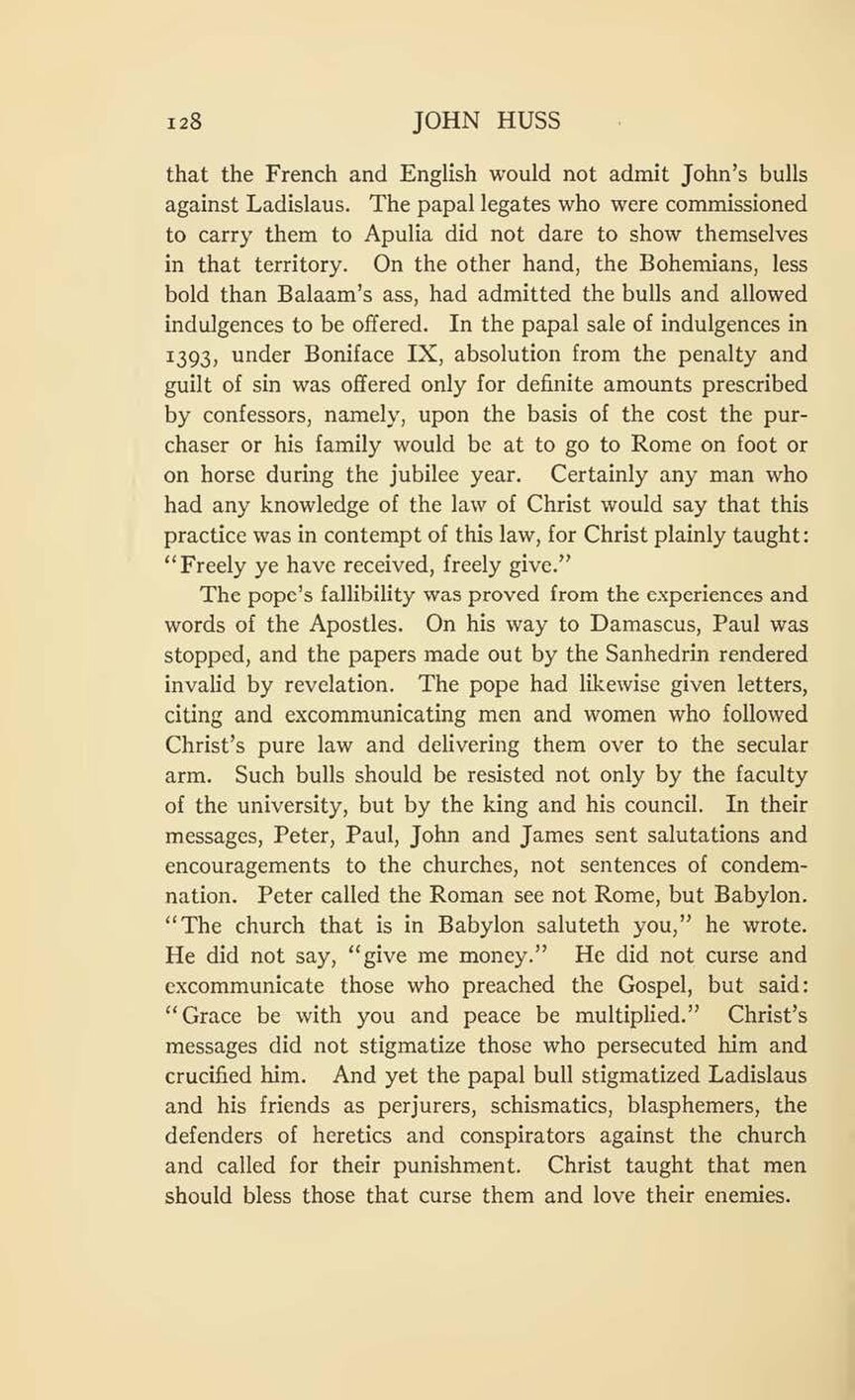that the French and English would not admit John’s bulls against Ladislaus. The papal legates who were commissioned to carry them to Apulia did not dare to show themselves in that territory. On the other hand, the Bohemians, less bold than Balaam’s ass, had admitted the bulls and allowed indulgences to be offered. In the papal sale of indulgences in 1393, under Boniface IX, absolution from the penalty and guilt of sin was offered only for definite amounts prescribed by confessors, namely, upon the basis of the cost the purchaser or his family would be at to go to Rome on foot or on horse during the jubilee year. Certainly any man who had any knowledge of the law of Christ would say that this practice was in contempt of this law, for Christ plainly taught: “Freely ye have received, freely give.”
The pope’s fallibility was proved from the experiences and words of the Apostles. On his way to Damascus, Paul was stopped, and the papers made out by the Sanhedrin rendered invalid by revelation. The pope had likewise given letters, citing and excommunicating men and women who followed Christ’s pure law and delivering them over to the secular arm. Such bulls should be resisted not only by the faculty of the university, but by the king and his council. In their messages, Peter, Paul, John and James sent salutations and encouragements to the chur not sentences of condemnation. Peter called the Roman see not Rome, but Babylon. “The church that is in Babylon saluteth you,” he wrote. He did not say, “give me money.” He did not curse and excommunicate those who preached the Gospel, but said: “Grace be with you and peace be multiplied.” Christ’s messages did not stigmatize those who persecuted him and crucified him. And yet the papal bull stigmatized Ladislaus and his friends as perjurers, schismatics, blasphemers, the defenders of heretics and conspirators against the church and called for their punishment. Christ taught that men should bless those that curse them and love their enemies.
